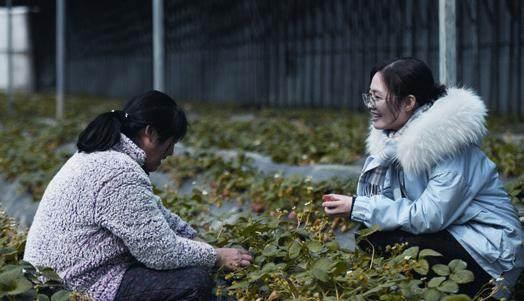HOW CHINA’S YOUNG PEOPLE SEE THEMSELVES
2022-05-09ByJosefGregoryMahoney
By Josef Gregory Mahoney

May 4: the annual Chinese holiday for young people, linked historically to the 1919 May Fourth Movement when scores of students took to the streets to call for reforms, if not revolution, for national salvation. At that time, China was in the midst of its “century of humiliation.” The nation faced existential crises associated with imperial aggression, compounded by severe and widening gaps in political, economic, scientific and cultural development.
That was then, this is now. Today, China is in the global vanguard as an economic power and technological society. Many estimates predict China may well be the worlds leading economy in the next 10 to 15 years. After generations of struggle, including multiple revolutions and continuous cycles of reform, China claims it has entered a new era, one that offers all—but especially the young—better conditions than any that came before. Indeed, this was one of the key conclusions of a new white paper on Chinese youth recently issued in Beijing.
Changes
I have been working with Chinese students since the 1990s, and have observed firsthand their changing conditions, often delineated by the decades in which they were born. Many are certainly aware that life today is far more comfortable and easier than it was in their grandparents, or even parents, youth. With this in mind, I would like to share some of what they related to me, including their hopes, dreams and fears which resonate with what Ive found on Douyin, Kuaishou, Weibo, Zhihu and even Bilibili—all popular platforms among young people in China.
Lets begin with the white paper itself. Most whove read it find it agreeable; the only criticism Ive heard from more than one source is that its language is regrettably bureaucratic. It was suggested that if one wants to write a paper that actually addresses young people instead of merely describing them, such an effort might be better served by communicating in a less officious way. Stylistic criticism aside, those who managed to push through the document and discuss it in turn described their reactions as follows:
After observing the horrors of how other countries failed to handle the pandemic, after taking stock of Chinas efforts to protect human lives and improve peoples livelihoods, including eliminating extreme poverty and revitalizing the countryside, pushing forward with green development, and standing tall as a major power, many feel proud and privileged to be Chinese in this day and age. They expressed a considerable confidence in Chinas future and are eager to be part of it.A93A716B-7940-4439-B168-AF4A24688E53
Many seemed supportive of Chinas ongoing efforts to build socialism. Again, they pointed to the governments responses to emerging crises and longstanding needs as key indicators, but also criticized what they saw as market excesses associated with capitalism, including those at home and abroad. They seemed generally supportive of recent regulations targeting misconduct by Chinese tech firms and the previously out-of-control off-campus tutoring institutions, which several believed had victimized them. That said, many were confused about what socialism should mean for them in terms of their studies and future employment.
Several described feeling a type of existential angst. On the one hand, theyre proud to be Chinese, happy to be part of a large, powerful nation, and pleased that their conditions and prospects are strong. On the other, having grown up in an accelerating consumer society, shaped substantially by social media, they also described feeling small and alienated.
Interestingly, some pointed directly to their unsatisfying relationships with commodities, describing them as an unhealthy but inescapable addiction, including concerns that commodity culture, in tandem with social media, is atomizing—that it pushes one into an unhappy egocentrism that feels smaller and smaller in an ever-expanding digital space.
With their favorable conditions come the pressures they feel to outperform previous generations, and to do so despite slowing economic growth and increasing living costs. None said they wanted to “lie down” (tangping), but they noted intense competition both among their peers and from international sources. They were fearful of running to death, of living shallow lives and reaching early graves.
None seemed particularly concerned about increasing frictions with the United States—or other countries. Having grown up in a world dominated by American culture and soft power, they are not generally antagonistic toward a culture and products that have always been part of their lives. In short, they cant really imagine living in a country void of Coca Cola, Nike and Hollywood. That said, they do recognize the costs associated with foreign soft power and would like to see Chinese brands build their global reputation.

Nevertheless, they tempered their comments given their growing concerns with Americanstyle consumerism, as noted above. Further, some said China needs to do a better job creating media and intellectual property that sells well overseas, both to earn money but also to help communicate Chinese values to the world. Several pointed to Chinas growing capacity in video game production, but lamented content controls that made it difficult to appeal to international tastes. Unsurprisingly, they dont like being misunderstood or mischaracterized in global media.A93A716B-7940-4439-B168-AF4A24688E53
Several noted what they saw as concerns for improving social justice. These overlapped with what they saw as competing generational perspectives and values, as well as the potential for polarization within their own age group. Indeed, one of the outcomes long associated with Chinas rapid development has been the emergence of significant generation gaps. In some ways, these gaps are intersecting with old ideas and new pressures.
Prospects
Ive tried to encapsulate a much larger discussion through the points above, but what I find most compelling and distinctive among Chinese young people today is the extent to which they are thinking through these issues, placing them and themselves in historical context. Many are expressing a profound awareness, of self, generation, and nation, and are trying to reconcile these as they move forward. It would be reductive to describe this using the American term “wokeness,” but there is clearly an ongoing engagement and discussion that far exceeds what was observed 10, even five, years ago.
Though we can see some excessive sentiments on social media, I did not sense radicalism in any who spoke with me, nor recourses to unhealthy forms of nationalism and ethnocentrism. Rather, they were pensive and critically self-reflective. They were confident but not over-confident. They were seeking meaningful resolutions to the contradictions in their lives, but also genuinely appreciative of their relative good fortune.
All these qualities combined, they appear to have the best prospects of any generation that Ive encountered in China in nearly two and a half decades. My sense is they are not just the beneficiaries of a China thats changed for the better, they will also etch their own names in the history books as they help craft the changes to come. BRA93A716B-7940-4439-B168-AF4A24688E53
